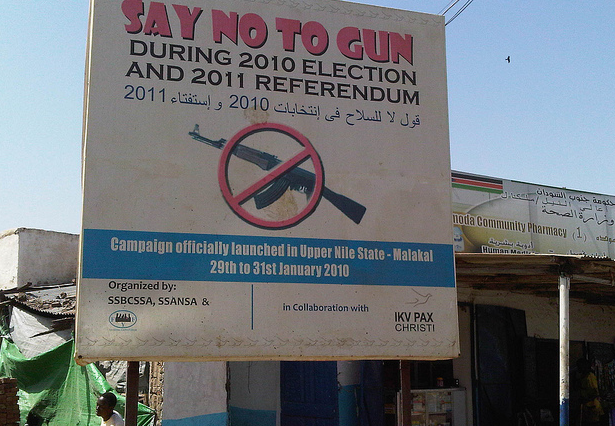
As South Sudan moves closer to independence, the proliferation of militias, particularly in the Greater Upper Nile region, raises serious concerns about the government’s ability to maintain stability within its borders. On March 12, one such militia attacked the town of Malakal, capital of Upper Nile state, leading to yet another crackdown by the Sudan People’s Liberation Army, or SPLA, on the town and its residents.
Last week, Enough released a field dispatch by policy analyst Laura Jones, which delves into the situation in Malakal based on field research conducted just days after the attack on the town. “Lessons from Upper Nile” not only provides an in-depth look at the reasons behind this attack, but also delves into the SPLA’s approach to dealing with the militia problem, which ironically is in some ways to blame for the increase in militia-related violence.
As Laura states in her dispatch:
The attack on Malakal, which followed a botched attempt at integration as well as years of tension between the government and the citizens of the region, is in many ways illustrative of the weaknesses of the government approach to dealing not only with these militias but also with the concerns of its citizenry. At best, the approach to militia groups – which up to this point has been to deal with them militarily or offer amnesty and integration – has been insufficient to deal with the problem and needs a serious rethink. At worst, the approach has contributed to the predicament, by enabling a situation in which the grievances against the state security apparatus are multiplied, thus making the people especially prone to manipulation by those wanting to dismantle the state.
Read Laura Jones’s field dispatch on Malakal.
Photo: 'Say no to gun' sign in Malakal (SDC-GINET/Daniel Sullivan)

